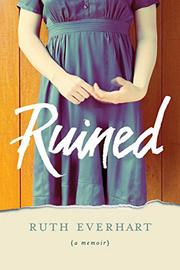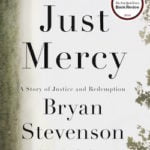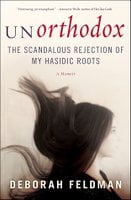It's summer and time that many of us start thinking about picking up a good book for a Saturdays at the pool or to dive into over vacations. If this is you, here are 4 thought-provoking non-fiction picks I would add to your list . . . books that might make you think about racism, sexual violence, disabilities or fundamentalism differently.
 Pre-order now. Will be released on August 2nd. Ruth is a friend of mine from the RevWriting group I participated in from 2012-2015. During that time, I watched Ruth develop, write, and re-write this memoir about her experience of being sexually assaulted while a student at Calvin College and all that came next.
Pre-order now. Will be released on August 2nd. Ruth is a friend of mine from the RevWriting group I participated in from 2012-2015. During that time, I watched Ruth develop, write, and re-write this memoir about her experience of being sexually assaulted while a student at Calvin College and all that came next.
In Ruined, Ruth does not shy away from the hard places of theological shaming, rape, grief and messy vocational callings. From the first chapters I read of this project, I knew Ruth was the real deal. Her command and fluidity of language drew me into her story from the start. Her courage to share her story with such vulnerability pushed me to tell my own. Her willingness to explore theological hard places keep me thinking long after I put her book down. Ruth's story is a one that the church needs because it doesn't shy away from the hard places of life. She tells the truth!
2. Just Mercy: A Story of Justice and Redemption by Bryan Stevenson
Our world needs more angels like Bryan Stevenson and more stories like this one! I literally could not put it down when I started  reading it back in April. It was one of those reads where I felt convicted on every page on how much I didn't know that I thought I did about our prison/ justice system in America.
reading it back in April. It was one of those reads where I felt convicted on every page on how much I didn't know that I thought I did about our prison/ justice system in America.
In Just Mercy, we gain a front row of Bryan Stevenson's journey from 23-year-old Harvard Law student encountering prejudge in the criminal system for the first time in the deep south to founder of the Equal Justice Initiative based in Alabama with far reach. This author writes with such clarity and trustworthiness as a narrator that you are just hanging on every word to see what comes of his vast collection of clients. Of special interest is the case of Walter McMillian, a convicted murder on death row-- who we learn is innocent. But the question is will he be released from prison? Though I've heard stories like this for years by colleagues in prison ministry, Just Mercy did something to me. With a softened heart to the cause, I'm ready to act.
3. Unorthodox: the Scandalous Rejection of my Hasidic Roots by Deborah Feldman.
 Growing up in a sheltered Christian home, I thought my type of Christians were the only weird ones. But, it isn't true, of course. Fundamentalists are found in every religious tradition. A friend recently introduced me to this memoir of Deborah Feldman saying Unorthodox "is like Jewish version of your life."
Growing up in a sheltered Christian home, I thought my type of Christians were the only weird ones. But, it isn't true, of course. Fundamentalists are found in every religious tradition. A friend recently introduced me to this memoir of Deborah Feldman saying Unorthodox "is like Jewish version of your life."
I was delightfully surprised at what an all-encompassing view Unorthodox gave of what it is really like to grow up as a Hasidic Jew in New York City. We follow her from the days of her bewildering childhood, being raised by her grandparents as a child of a mother who ran away and a father without the mental capacity for child rearing. As much as this author tries to fit in and be a "good girl," one her (especially religious grandfather will approve of) slowly we see her transformation. We see the joy that comes to her from sneaking library books under her mattress. We see the joy that comes as she thinks independently. We see the joy that comes as she makes friends in high school who are also experimenting with the outside world like her. It's quite a journey, this book.
4. Before and After Zachariah by Fern Kupfer
This book might be harder to find in print (written in the 1980s) but it's worth the search if you can find it! The vivid language and emotionally driven plot captivates the heart about of a family's struggle to make peace with the son given to them-- a gift they would have not chosen. This memoir plays out in a quiet Midwestern town through the voice of Fern, the mom, and describes for readers the ups and downs of what it means to birth, raise and make decisions for the care of a severely mentally and physically challenged child. Questions of "When it is it time to institutionalize?" Or "How does a marriage survive such kind of care for another?" Or even "How do you parent a 'normal' child while taking care of such a 'abnormal' one too?" are raised in ways that the reader does not often expect. I was challenged to reconsider how I think about and care for parents and teachers I know who are caring for special needs children.
What are you reading this summer?